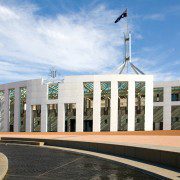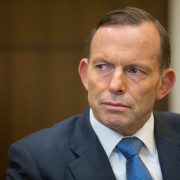It is impossible not to feel for Tony Abbott after the events of Monday this week. There is no doubt that he is a well-intentioned man with, what he considered to be, the nation’s best interests at heart.
It must be acknowledged how devastatingly effective he was as an Opposition Leader; albeit using his core strengths (dogged determination, a boxing blue, and, yes, three word slogans) to lower the tone of Parliament, and the approach to national politics in general. In this endeavour he had many willing co-conspirators from both sides of the Chamber and beyond.
During that period one could argue that he effectively took down three Prime Ministers (Julia Gillard and Kevin Rudd – twice), no easy task. What no one recognised during what appeared to be his ‘Howitzer’ phase was that he was also drawing up the plans for his own downfall.
He wasn’t a mere draftsman; he was an architect.
He demonstrated how to exploit a broken promise with a zeal unlikely seen anywhere outside a relationship on the rocks. It would be almost impossible to calculate the number of times a high-vis Abbott reminded us about the carbon tax that should never have been.
He was a pathfinder, illuminating the way for future Oppositions.
That’s what makes the Budget of 2014 so mystifying.
A litany of broken promises that drained the pool of credibility, which had been partially filled during the long years he had led the Opposition (granted, it was not terribly deep).
Compounded by the perception that it was highly inequitable, that Budget triggered a response from our collective reptilian brain that fairness was still an Australian trait. Assault fairness – insult the nation.
The sales job was carried out via the echo chamber. Yell an idea in; hear a slogan echoed back. It worked, but only on those doing the yelling. No one had considered informing the electorate of the need for action, let alone contemplating taking it along for the ride.
The appalling politics and communication of Budget 2014 made our former PM (and his fledgling government) an easy target; transforming him from a man of whom the nation was wary but willing to give a go; to another promise-breaking, untrustworthy, administratively inept leader.
Tony Abbott had morphed into what he had previously destroyed.
It is this aspect that generates an increased level of empathy in me for how Mr Abbott must be feeling today. The galling knowledge that in attempting to emulate one of his political heroes, that he had executed his plan so poorly he found himself at the trailhead of destruction. Ironically, he was the cartographer responsible for the map that identified his position so precisely.
It is impossible to gloss over the fact that every time he managed to give his hunters the slip, he, or one of his coterie would send up a flare alerting them to his whereabouts. From Sir Philip, to Bronwyn, to Peter Dutton’s trés hilarious joke – he was Canberra’s Tantalus, almost reaching his goal but not quite being able to reach it.
I hope that history remembers former Prime Minister Abbott with more than just a PutYourOnionsOut hash tag. He deserves better than that.
I also hope that the team of Malcolm Turnbull and Julie Bishop go forward to deliver on their commitment of communicating with the nation, as opposed to treating us as mere tax-paying minions. After all, their decisions will likely have fairly substantial impacts on the lives of us tax-paying minions.
Finally, there’s a chance that the tenor of our national debate will improve and that we will witness some non-poll/focus group driven leadership and policy development.
Who knows, good government might have even started yesterday.




